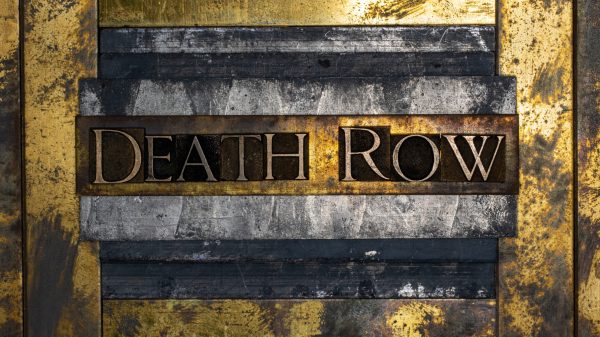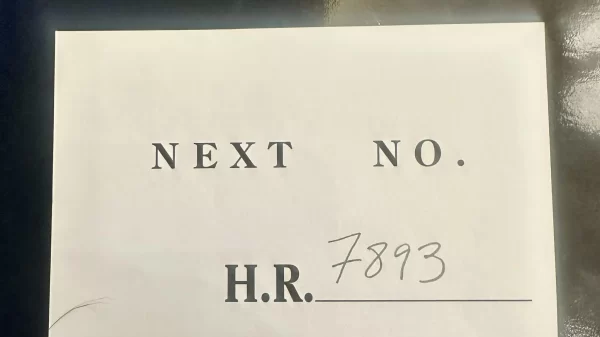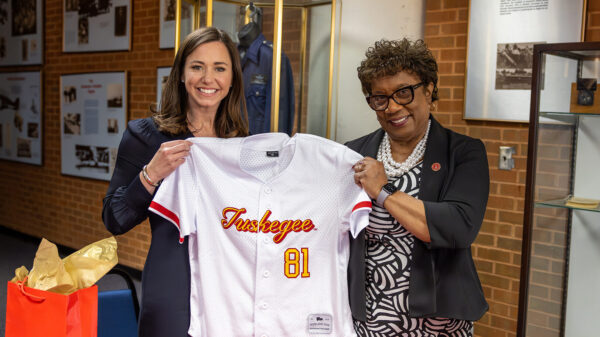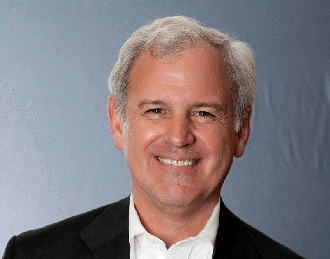By Bill Britt
Alabama Political Reporter
Since running for the Governor’s Office in 2010 Bradley Byrne has remained focused on the ideas he promoted during his campaign. Instead of giving up on his vision for Alabama Byrne along with others founded “Reform Alabama.” Byrne describes Reform Alabama as “Do Thank.” not a think tank. One of the areas that they group has been hard at work on is education.
Recently we spoke with Byrne about education and the ideas, methods and programs Reform Alabama has created. The following is part two of our interview with Mr. Byrne.
APR: In the blueprint you focus on the vast benefits of digital learning. One of the last things Steve Jobs was very passionate about was using digital learning tools (i.e. iPads.) It seems digital learning will make education more accessible and innovative because of limitation of books, teachers, classes. Digital really opens that up. Can you talk about your thinking on that?
BYRNE: This is something that has matured around the country now. We have lots of examples and experiences we can point to where using “smart pads” can truly revolutionize the way the student is taught in the classroom. It really makes the teacher more than just somebody who stands in front of the room and lectures and writes on the blackboard. That teacher will now be able to use this pad as a device; in essence, quadruple what they are normally able to do because they can use so many different things to draw on and teach children. A textbook is one small thing you can do with the pad; you can download the textbook to the pad. Just as importantly, the teacher can do so many other things: teacher can download a lecture on a given topic like math quadratic equations or if it’s history of the Colonial era, a noted expert a great teacher gets up and does the lecture. The teacher can use that as the bases of other things so that the class can draw the students into better learning. It will also revolutionize homework, the old way we used to do homework; we can do it completely different now. It makes everyone accountable because the teachers pad is synced up to the teachers’ pads, so when the student walks into the classroom every morning their pads will talk to the teachers’ pads and the teachers pad will know who did their homework and who didn’t. It shows who did better on this subject and who did worse on another subject and how well the homework was completed. It just makes our teachers much, much better at what they’re doing because it gives us so many new tools. And the kids love them. The experience we’re having in Baldwin County at the high school in Bay Minette is that much less absenteeism and students are keeping up better in class. Baldwin County has decided to give every high school student in the county starting next year a pad. That’s how many of our courses in high school in Baldwin County will be taught next year. There’s no reason why we can’t run with that and spread it through the state.
APR: Well the very notion of books and the way we have handled them over the years. They were based on the idea that information was scarce and resources were limited. With digital aides such as iPads, the world has opened to a vast array of information that we never imagined. For years I have been thinking about digital learning as the opening of the virtual library of Alexandria, all the world’s knowledge at ones finger tips. Digital education does immerse the student in the learning experience rather than just a plain words on a page.
BYRNE: Well textbooks are written by these big textbook companies to satisfy the largest states in America where they sell most of their textbooks. So they’re not even necessarily made to be consistent with the Alabama courses of study. This way a teacher can tailor make whatever instructional tools or information they want to make to be consistent with the Alabama course of study that the standards the state Board of Education has set.
APR: Yet another thought in my mind is that the ideas of giving more local control and input, rather than Montgomery having all and final say, what is your notion on that?
BYRNE: I think it is the role of the state to set standards and to have accountability measures in place to hold everybody to be consistent to those standards. But exactly how each individual school or school system decides to do that, I don’t think you want Montgomery forcing that on them; let’s let innovation occur out there in local systems and local schools and learn from those innovations on what works and doesn’t work. There are some mighty good people in education around Alabama that have really figured out some things that work and some that don’t work. We’re better off letting them have the flexibility to try that and then we’ll get better together.
APR: One of the things I know you’re heavily involved in when you were chancellor of the two year college system was the work-force training. We hear that quite a bit that there are jobs that are going unfilled because we’re not training student to perform the work. I don’t want to say every kid is not going to college, but we as a Nation had this idea for years every child must go to college. The work force training certainly offers an alternative path. What is going on with work force development and how do you see Reform Alabama coming up with ideas for work force training?
BYRNE: The most important thing, the first step I should say, is to talk to young people when they’re in middle school about career paths. They need to start thinking as young as seventh grade about what field they think they may want to go in to. Might be health care, may be a doctor or a nurse or a physical therapist, there’s a whole array of things they could do within the health care field. Same as true as technology and manufacturing, same is true with law enforcement. I could go on and on. What we need to do is start working with these young people in middle school and find an area they’re interested in. Then that helps them understand what courses they need to be taking when they leave middle school and go to high school. One of the biggest problems we faced when I was chancellor was in our nursing program. We have a very high attrition rate among our nursing students. We realized the problem was too many students were getting out of high school and going to a two-year college nursing program and didn’t have adequate science or math background in order to take the rigorous courses the nurses have to take in bio-sciences. We’ve got to get young people thinking that even if you don’t want to be a doctor, you want to be a nurse; you still have to take all those sciences and all that math. We’ve got to get them thinking that in high school. As far as the actual training itself goes, nothing limits anybody. If you get a two year college associate degree in nursing that doesn’t mean you can’t go on and get a bachelor degree in nursing. If you get a one year certificate in manufacturing and technology from a two year college, that doesn’t mean you can’t go on to a four year college and get an engineering degree. I was talking to the engineering dean a couple years ago, his best engineering students were the ones that took welding classes in high school and knew how to weld. I don’t see work force training in a limit on people. But there are people who are going to say that I once I have the skill that I want to have, ‘that’s it I’m done with school, I’m going to work.’ And that’s great. We need to have programs that place that are geared toward what there is a high demand for in the economy and to make sure we provide very high quality training for young people to go in to them. What we started when I was chancellor, The Dual Enrollment Program, where you can be dual enrolled in a public high school in Alabama as well as the local two year college. You get credit for the courses you are taking. Literally, it is possible and is happening, where students graduate one day from high school in their community, then one week later graduate from their local community college with a technical degree and immediately go to work making far more money I would have ever made immediately out of high school. We see that rolling throughout in the public middle schools and the public high schools and the two year colleges, and if they want to go beyond that, they can go on to one of our four year universities.
APR: I can’t imagine having that option when I was that age. One of the things I believe is that more people succeed it becomes a habit and they become even more successful, when you get a kid who is doing well then he feels good about himself and therefor makes better choices. PARCA has a lot of statistical overlays where it shows poorly performing schools and in the overlay there is more crime in the community, and the further overlay is that their are more people in jail. So you have poor education, crime, and on top of that crowded correctional facilities. One part of the American dream is that as an individual you can work and succeed financially and this requires some type of skill and that means receiving a good education. Could you give us a vision of where you see education in the next 5 years?
BYRNE: I believe if we provide more choices and alternatives for students and their parents that they will make decisions to put themselves in the right place and the right program. Some people think that means the traditional public school will go away and that is completely false. If you look across America only about 5 percent of all schools in America are charter schools or something like a charter school. The vast majority of our schools and students will still be in the traditional public school. What won’t be traditional, I hope, is the way we’re delivering education to students. If we’re not only using the new technology that’s out there, and empowering our teachers to do things that are outside the box from what has formerly been done; not just because of technology, but because of other things we can provide to them. That does get to the second part of the important decision: quality people who lead our schools and who are the deliverers of our education in schools, our classroom teachers. Everything turns on that, but if we give them the tools that they need and free them of some of the gobbly gook so they can actually do their jobs. I believe we have educators in Alabama to do this.
Any state that can have National Football Champions three years running from two different colleges and two of those years the Heisman trophy winner, any state that can do that, can make the sort of gains we’re talking about in education. Couple those educational gains with the pro-business environment we have in Alabama and our economy will take off, it really will take off. For example, in the Tennessee Valley, if we can give those people what they need for the University of Alabama Huntsville, and other higher education up there so they become the “MIT of the South” there’s no question with the already vibrant economy up there, it will just explode. If we can continue to build on the progress we’ve already made with the automotive community by creating this very large group of highly educated, highly trained people of automotive technology, we will become very quickly the state to go to for an automobile. If we can build the sort of aerospace engineers and technicians needed for the aerospace industry you can see Mobile be one of the few sites in the world to build large body commercial jets. The whole aerospace community from Mobile to Elmore County where they have a large facility, to the Wiregrass where they do a lot of helicopter work, to Huntsville where they do a lot of rocket work. We can become the leading aerospace centers of the world. You start multiplying this across the fields in which we’re involved and Alabama and our state will become the hottest economic property in the world.
APR: I think we all want to see Alabama be even better. A question I should have asked before, the group talks about budget reform. Can you share what needs to happen and how?
BYRNE: Right now we are very prescriptive in the ways we send money from the state to schools. We send money to schools and say you have to spend this much money on teachers, this much on textbooks, this much on school buses, we need to open that process up. If we’re going to hold schools and school systems accountable for results, we need to give them freedom to set their budgets and spend their money to accomplish those results. There may be differences out there on how different school systems will want to do it. We also need to be less prescriptive on the way we pay teachers; right now we have a salary matrix, it is all set in stone on that salary matrix. A teacher could be doing super well and we can’t reward them as we should because we’re stuck with the salary matrix. There needs to be a way to free up some money so that the teachers who do especially well in the classroom will be paid more. If we can loosen up the money we send out to the school systems from the state, but make sure the incentives are there through our accountability measures, so they’re getting results for what they’re doing. I think that will aid in what we’re trying to do in the educational system in the state.
APR: How big of a hurdle is that?
BYRNE: It’s big. Everybody has gotten used to the way we do it. School superintendents have gotten used to it, school systems, teachers, and none of us like change. Change is difficult for all of us. But we know that states have looked at things like that and made big gains because they’re rewarding the performance of teachers. I think we need to reward performance of our teachers. Our teachers in Alabama haven’t had a pay raise in over four years, and last year the governor proposed and the legislature electorally agreed increasing by 50 percent how much they have to pay towards their pensions. That’s just unfortunately the budget reality of what a lot of people have had to deal with. But what is the message are we sending to our teachers who are in those classrooms day in and day out who are really doing the hard work of educating our children? Maybe if we loosened up on some of their budget our local school systems could find a way to start rewarding our hard working and high performing teachers.
APR: I think that’s an excellent idea, I don’t know if we want to go into the mechanics of why that can’t happen. I know there’s been an announcement that everyone is on this idea of charter schools but if you’re a parent in Vestavia Hills, you may not see the need of charter schools.
BYRNE: I think what you will find is that most places in Alabama, they’re satisfied with their local schools to where they won’t go through the efforts to start a charter school. But there some places in the state where schools are failing so badly that there will be a huge effort in those local areas for there to be a charter school. We did an analysis of five other states, and the total number of charter schools in state comparable to ours. In those states there are only about 50 or 60 charter schools for the whole state. So I don’t see charter schools becoming the norm or anything like the norm in Alabama. I think they will be used in certain places and they will do some things that will be constructive to the local public school system. I would hope the local public school system would start improving. I live in Baldwin County; I doubt we will have charter schools here in Baldwin County. The mayor of Montgomery has already said he wants them in Montgomery.
APR: If I’m hearing you right, one of the effects of charter schools in these areas where we have schools that are under-performing, is that the charter schools will have a positive effect in that it will get kids in to a place to perform better or have an opportunity to perform better, but also as an inspiration and an idea-bank for the public schools that are there.
BYRNE: Yes, if you have a public school across town from a charter school that has the same students body make up and those students at the charter school are performing 25 percent higher than students at the other public school, then hopefully the leadership in the public school system will say ‘What are they doing in the charter schools that works so we can do those things with our students?’ You would hope that would happen, but you can’t guarantee it because it all depends upon leadership. If a football coach across town went to a different type of offense and his team was scoring a lot more points and winning more games, I guarantee you the football coaches on the other side of town would say we have to have that same offense. So I would hope that would happen with charter schools.
APR: When I was talking with (Rep.) Chris England, one of the things he was talking about was that we spent a lot of time and money selecting superintendents, and they are well-paid, yet when they get to the job their hands are tied to a large degree, in his thinking. He felt superintendents should be given more choice– now he is not in favor of charter schools—but he felt if we gave more choice to the public schools they could do just as good of a job.
BYRNE: Well, that is a fair point. One of the bills we are pushing as part of the package the legislature is going to take up is what we call charter schools systems, but they won’t call them that in the legislation. Essentially expect high standards from schools that would apply to go through this program, if they want high standards and to stay there, then they will be released from some of the restrictions that schools have right now. I think that is a very positive thing. There’s no doubt in my mind we have a number of school systems around Alabama who if they were free from some of the restrictions they presently have, could provide a very high quality education to our students. I hope Representative England and people that think that same way will get behind that package of bills and see it get passed.
APR: Here in Alabama charter schools will work under the same school system it is not a case where someone comes in and wants to start a charter school and we just say ok?
BYRNE: Well the way we work is all the charter schools are still public schools with public school students. While some of the restrictions will be relaxed but the basic ones are kept to ensure student safety. What happens in charter schools is the educational money from the state would typically follow the student. The was a lot of the charter schools work is they do have private philanthropic money that comes in addition to those public dollars to help do some additional things that they may need in those schools. If our charter schools are like the ones around the rest of the country, you will see most of them, if not all of them receive some private money coming in to help them be successful.
APR: OK I didn’t understand that connection completely, but I do now. I know in Brazil they have what I guess is charter schools, but their public schools and even universities, are privately funded. Rotary even funds schools. It’s a very interesting thing they have there; it’s a mix of capitalism in the schools. I think you get a better choice if you have competition, you have better schools.
BYRNE: Competition has that affect, I was reading an article earlier today, and I think it is 55 percent of all of the players in the NFL today come from the Deep South. Thirty-seven percent of the population in America is from the Deep South but 55 percent of the NFL players: why is that? Well it’s because any given Friday night in the fall, you’ve got everybody in that community and everybody in those schools absolutely focused on how their team can beat the team they’re playing. Competition in the South, makes our players the best players in the country, there’s no question about that. Well the same is going to be true in education, I keep giving these football analogies, but they just happen to be right. If you have that level of competition out there, then our schools are going to get better.
APR: Any other thoughts or things we need to talk about?
BYRNE: For one thing I didn’t mention when talking about accountability, when we talked to the people in Florida about what worked the best for them, they said the single most important thing they did was to give each school in the state of Florida a single letter grade, ABCDF. In Alabama we issue a fairly long and difficult to read report card on schools, what we propose would be to reduce all that to a single letter grade. So then a parent or community leaders can look at a school and say that is an A school or a B school, etc. You will say why is my child going to a C or a D or gosh forbid an F school? So that helped push things forward in Florida. I believe the letter grade will be a meaningful tool in accountability. This is, not to punish anybody but to have a means to make things work better.
APR: That certainly simplifies it. I wish you all the best and this certainly will help the state and that’s what we’re doing this for.
BYRNE: We’ve got a lot of people helping us, and if we have as much success with the legislature session this year as we did last year, we feel optimistic about getting these things done.





















































